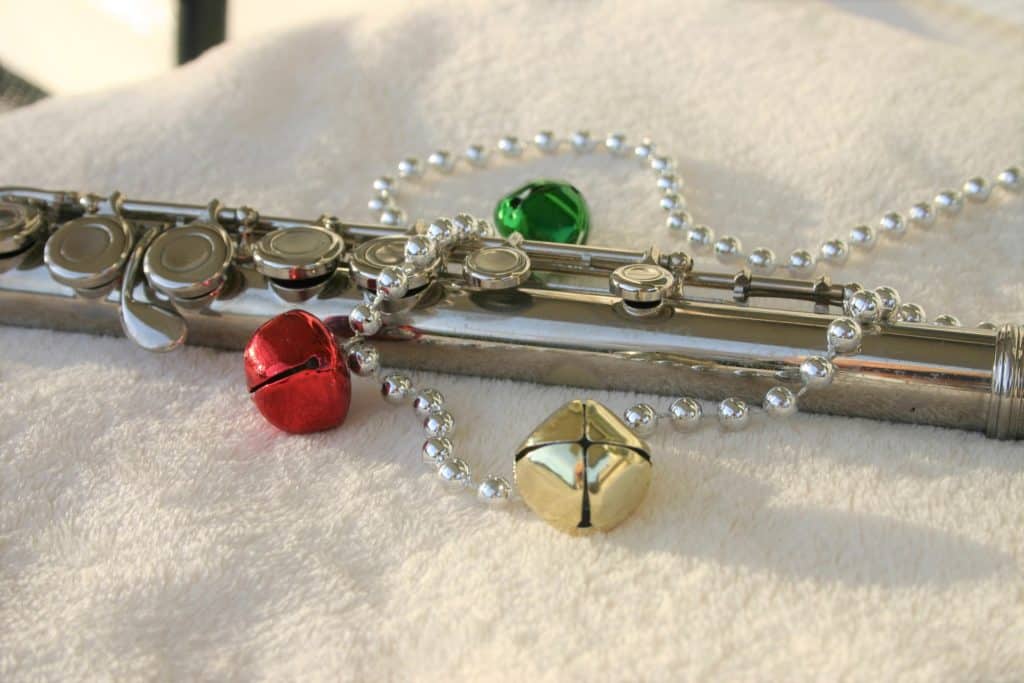
Finely crafted Irish harps produce angelic, resonating sounds that have delighted audiences since medieval times.
Continuing that tradition is harpist Stephanie Sussmeier, who will play traditional Christmas and holiday songs on Thursday, at 6:30 p.m., in the lounge of the Mullica Hill branch library. Her performance will be the third of four shows in the county library system’s holiday concert program this year.
The Ceremonial Brass Band performed on Dec. 7 at the Logan branch and Richmond and Justin Carlton performed at the Margaret Dombrosky Library in Swedesboro. The final show will feature the students of Old Towne Music on Thursday, Dec. 29, at 7 p.m. at the Mullica Hill branch.
Sussmeier plays both the classical and Irish harps, and her extensive repertoire ranges from pop to historical, according to her website. “I am an avid admirer and player of classical, Celtic and international music,” she said.
Sussmeier is also a harp instructor at the Cygnus Creative Arts Centre in Egg Harbor Township and the Ocean City Arts Center, and gives presentations about the history of her instrument.
“She has performed here in December before,”said Nancy Polhamus, head of adult services for the library system. “This is very informal. We just set up chairs in the lounge area near the front of the library. Anyone is welcome to come and listen.”
“I am thrilled to be back at Mullica Hill branch of the Gloucester County Library System,” Sussmeier enthused. “It is such a lovely library, and I love the patrons and staff at Mullica Hill. I was able to do a Celtic harp performance in March for St. Patrick’s Day, and for the upcoming performance, I will be bringing my pedal (aka classical) harp.”
Sussmeier started playing the harp at 17, and while she was initially interested in the Celtic version, she could find only classical harp instructors in the area.
“Harp was supposed to be a hobby, but after a year of taking lessons, I was interested in performing professionally,” she explained. ”Despite only finding Classical teachers, I have been able to build a robust repertoire in Celtic music.”
Polhamus said, “We do not have formal concert programs,” Polhamus noted. “We occasionally book music performances as part of our normal programming. Once in a while, we have a jazz duo from Rowan University.”
The Celtic harp has been a national symbol of Ireland for many years, according to the Irish Emigration Museum in Dublin.
“The harp’s presence in Ireland dates back over 1,000 years,” reads the museum’s website. “It can be seen on manuscripts and Christian stone crosses, which date back to the 8th century. Harpers often studied for decades and were at the center of Gaelic social life. They were so valued that their nails, which were used to pluck the wire strings, were protected under Brehon Law.
“Since the 13th century, the harp had been considered the heraldic symbol of Ireland,” according to the website. “It was originally set on a dark blue background which, according to the National Library of Ireland, was intended to represent the sovereignty of Ireland in early Irish mythology.”
When Ireland came under English rule in 1155, there were various attempts to ban the harp, including in 1650, when Oliver Cromwell ordered the destruction of harps and organs. But the Irish continued to play the instrument, and it was represented in the flags of many Irish rebel groups who fought for independence over the years.









